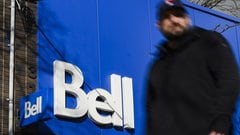Jul 2, 2024
Trump’s July 11 Hush-Money Sentencing Can Be Delayed, DA Says
, Bloomberg News
(Bloomberg) -- Donald Trump’s July 11 sentencing in his New York hush-money case is almost certain to be delayed after prosecutors said they would not oppose putting it on hold in light of the US Supreme Court ruling on presidential immunity in criminal cases.
Trump on Tuesday asked for the delay as part of a bid to overturn his conviction after the high court ruled he has at least some immunity from prosecution for official actions he took as president. Prosecutors said in their own letter to Judge Juan Merchan on Tuesday that they were prepared to respond by July 24, effectively putting off the sentencing for weeks, if not longer.
The Supreme Court’s 6-3 decision on Monday came in the federal criminal case against Trump for overturning the 2020 election results, but his New York lawyers contend it covers some evidence and testimony in the hush-money case.
The decision now rests with Merchan, who oversaw the New York trial and will most likely delay the sentencing to hear arguments on whether the verdict should be tossed. He may schedule a hearing in the matter, setting up another high-stakes clash between Trump and Manhattan prosecutors, who were the first to file criminal charges against the former president.
A spokesperson for Merchan didn’t immediately return an email seeking comment about the case.
District Attorney Alvin Bragg’s office said Trump’s request to file his formal motion on July 10 — a day before the scheduled sentencing hearing — amounted to a bid to delay the hearing. The DA said Trump’s arguments to throw out the verdict are “without merit,” but nevertheless said prosecutors would not object to a delay.
A Manhattan jury on May 30 found Trump guilty on 34 counts of falsifying business records to conceal a hush money payment to an adult-film star on the eve of the 2016 presidential election. Trump’s lawyers argue that in light of the Supreme Court’s landmark ruling on presidential immunity, key evidence and witness testimony tainted the trial.
‘Official Acts’
Jurors heard testimony and saw documents that could be evidence of “official acts” and might be barred under the Supreme Court ruling, according to the letter from Trump lawyers Todd Blanche and Emil Bove. They include Trump’s social media posts and public statements while in office; testimony by former White House officials Hope Hicks and Madeleine Westerhout; phones records involving Trump as president; and a financial disclosure form he filed in May 2018.
Much of the trial testimony, however, centered around actions by Trump before he took office. Michael Cohen, Trump’s former lawyer and fixer, testified that just weeks before the 2016 election, he paid $130,000 to porn star Stormy Daniels to stay silent about her alleged tryst with Trump. She had threatened to go public after the release of the Access Hollywood tape in which Trump discussed sexually assaulting women.
Cohen testified he repeatedly discussed Daniels with Trump, who blessed the repayment scheme. He said Trump authorized a plan to reimburse Cohen a total of $420,000, covering the Daniels check, payments for another vendor, an allotment for taxes and a bonus. Prosecutors argued Trump reimbursed Cohen for the hush-money scheme with several payments recorded as “legal services” in company books.
Prosecutors alleged that the case centered around an agreement between Trump, Cohen and former National Enquirer publisher David Pecker to buy and bury salacious news to help his chances of winning the election. That agreement was brokered at a 2015 Trump Tower meeting and continued after Trump was elected, prosecutors said.
(Updates with background on case beginning in 10th paragraph.)
©2024 Bloomberg L.P.








